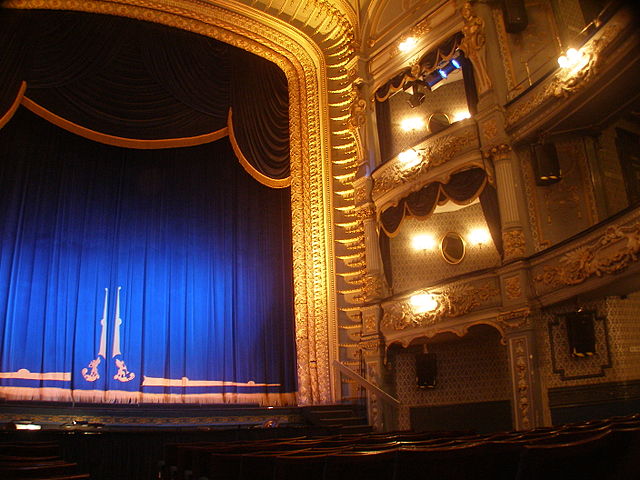 The theatre is a world of mystique, intrigue and illusion, serving to delight and entertain its audience with spectacle, no matter how otherworldly. This tradition of theatre is still upheld in many venues and arts spaces across the country and even across the world, but equally much of the previous spectacle has developed to accommodate the twenty first century. Productions have alternative intents, aiming to shock and provoke audiences rather than provide a successful model of theatre which has been proven to work.
The theatre is a world of mystique, intrigue and illusion, serving to delight and entertain its audience with spectacle, no matter how otherworldly. This tradition of theatre is still upheld in many venues and arts spaces across the country and even across the world, but equally much of the previous spectacle has developed to accommodate the twenty first century. Productions have alternative intents, aiming to shock and provoke audiences rather than provide a successful model of theatre which has been proven to work.
Despite many changes, developments and modernisations of the theatre, many of the time-old traditions remain stuck to the people, productions and venues. Superstition and performance ritual is just a small part of theatrical tradition, yet play a meaningful role in much of what is said and occurs without a second thought. Ever wondered why Shakespeare’s Macbeth is referred to as The Scottish Play, and not by its real name in the theatre? Why the Green Room is called just that? Why many dancers are wished good luck through “break a leg”, despite this being the worst thing that could happen to them?
A theatre or performance space is never without a Green Room, a place for the performers to rest, a limbo or sort of purgatory between the dressing rooms and the stage, somewhere to eat or sleep. There are many interpretations as to why this space – which may not even be green – is named as such, with one being that travelling actors would traditionally perform on the village or town green, and stay in the adjoining public house, usually called The Green Rooms.
Another name which has stuck is that of the theatre’s crew, responsible for set changes, scenery construction and other technical tasks which lift the production out of the rehearsal room. It is said that they are so called because traditionally they would be sailors, a ship’s crew, who would work in the theatre in between sea voyages. Despite many changes taking place to theatre over many years, these are just two features which have stuck.
Image courtesy of Wikimedia Commons.
